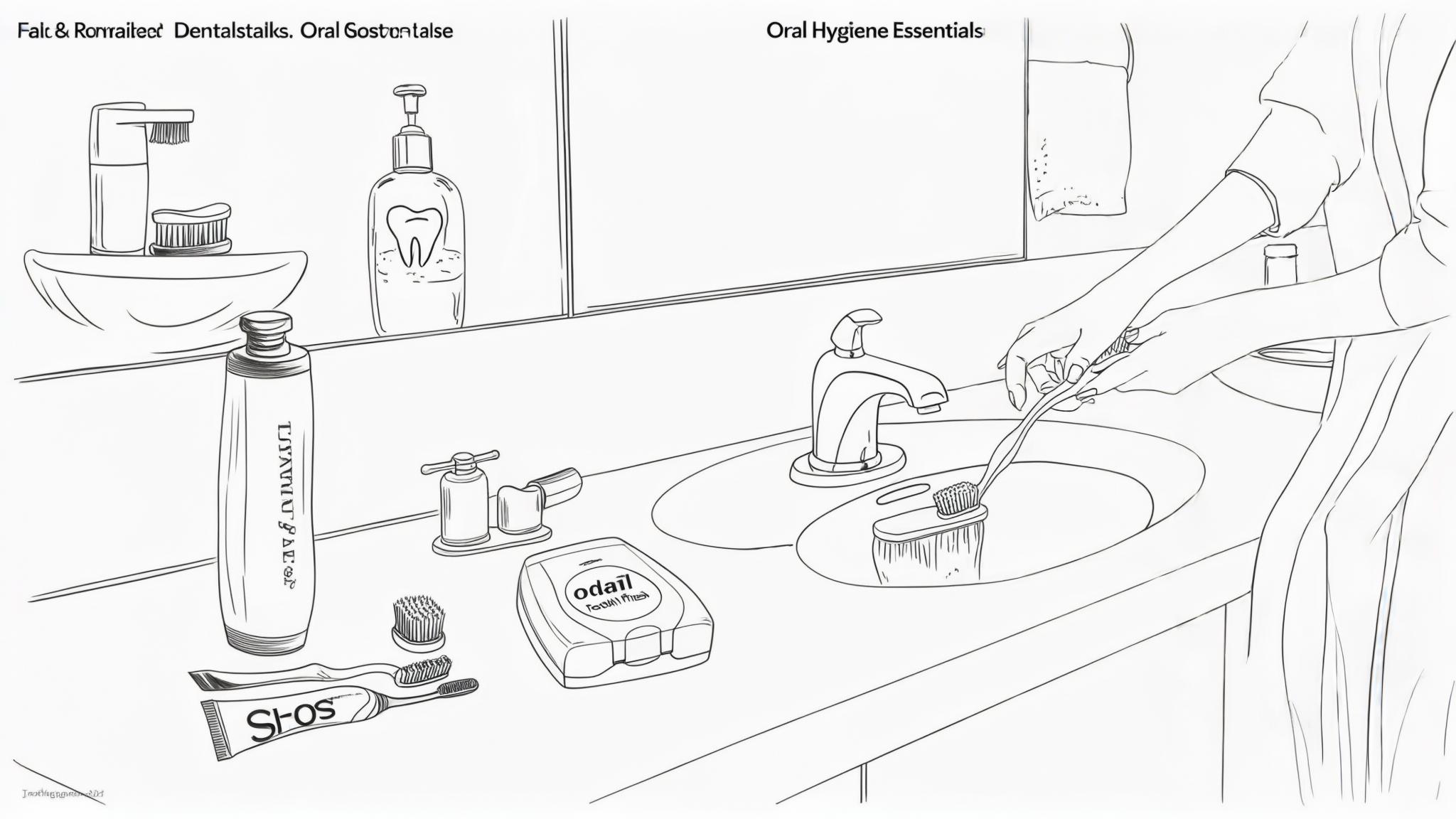Understanding Oral Hygiene
Oral hygiene is the practice of keeping one’s mouth clean and free of disease by regular brushing and cleaning between the teeth. It’s not just about having a bright smile; it’s a crucial part of maintaining overall health. Regular dental check-ups play a vital role in oral hygiene, helping to prevent dental diseases like cavities and gum disease, which can have broader health implications.
The purpose of this article is to evaluate various oral hygiene products and provide recommendations based on dental expertise, ensuring you have the knowledge to make informed choices.
Understanding Oral Hygiene
Definition and Significance
Oral hygiene is essential for preventing dental diseases such as cavities and gum disease. These conditions can lead to pain, tooth loss, and even more serious health issues like heart disease and diabetes. Good oral hygiene also impacts your overall health, as the mouth is a gateway to the body.
Components of Oral Hygiene
- Brushing: This is the cornerstone of oral hygiene. It helps remove plaque, a sticky film of bacteria that forms on teeth.
- Flossing: Flossing reaches places that your toothbrush can’t, removing food particles and plaque between teeth.
- Mouthwash: This can help reduce oral bacteria, freshen breath, and provide additional fluoride to strengthen teeth.
Types of Oral Hygiene Products
Toothbrushes
When it comes to toothbrushes, the choice between manual and electric can be significant. Manual toothbrushes are effective when used correctly; however, electric toothbrushes often provide a more thorough clean with less effort.
Bristle type is also important. Soft bristles are generally recommended as they’re gentle on gums and enamel. Some popular brands include Oral-B and Philips Sonicare, known for their reliable performance and innovative features.
Toothpaste
Toothpaste choices can be overwhelming. Fluoride toothpaste is essential as it strengthens enamel and prevents cavities. There are also options for whitening, sensitivity, and natural toothpaste. Brands like Colgate and Sensodyne offer a variety of formulations to meet different needs.
Dental Floss
Floss comes in various forms, including waxed, unwaxed, and dental tape. Each type has its benefits, depending on your teeth spacing and personal preference. Floss picks and water flossers are excellent alternatives for those who find traditional floss challenging. Waterpik is a leading brand in this category.
Mouthwash
Mouthwash can be antiseptic to kill bacteria or fluoride-based to strengthen teeth. Alcohol-free options are available for those with sensitive mouths. Listerine and ACT are trusted brands offering a range of mouthwashes to suit different needs.
Evaluating Product Efficacy
Clinical Studies and Evidence-Based Recommendations
Choosing the right products is crucial, and clinical studies can provide evidence-based recommendations. These studies help determine which products are most effective in maintaining oral health.
Factors Influencing Product Effectiveness
- User Technique: Proper technique is crucial for product effectiveness.
- Frequency of Use: Regular use is necessary for optimal results.
- Individual Dental Needs: Personal needs vary, so it’s important to choose products that suit your specific conditions.
Common Misconceptions about Oral Hygiene Products
Myths vs. Facts
There are many myths about oral hygiene products. For instance, some believe that harder bristles clean better, when in fact, they can damage gums and enamel.
Importance of Professional Guidance
Consulting with a dentist can dispel myths and provide personalized advice, ensuring that you use the most effective products for your needs.
Recommendations from Your Dentist
Personalized Advice Based on Individual Needs
Your dentist can offer personalized recommendations based on your dental history and current health.
Importance of Consulting with a Dentist Before Choosing Products
Before trying new products, it’s wise to consult with a dental professional to ensure they’re suitable for you.
Tips for Maintaining Oral Hygiene Between Check-Ups
Regular brushing, flossing, and using mouthwash are key. Additionally, maintaining a balanced diet and avoiding sugary snacks can help keep your teeth healthy.
Conclusion
Using effective oral hygiene products is crucial for maintaining good oral health. Regular dental check-ups and professional advice are invaluable in choosing the right products and techniques. Prioritize your oral health by staying informed and consulting with your dentist regularly.
References
For further reading, consider exploring resources from the American Dental Association and other reputable dental health organizations.

